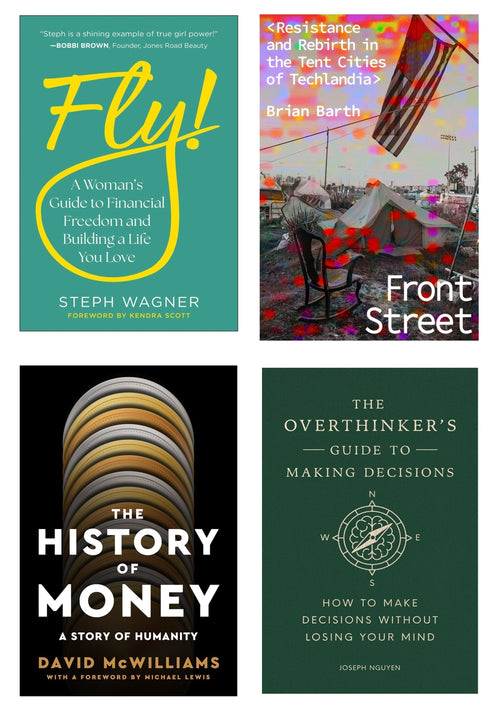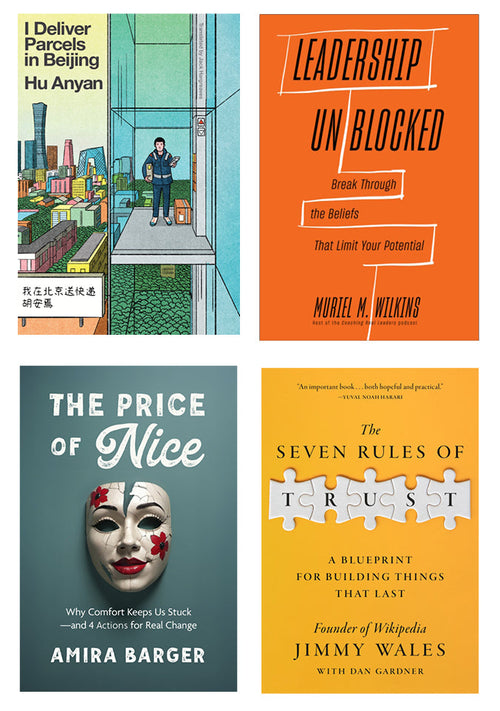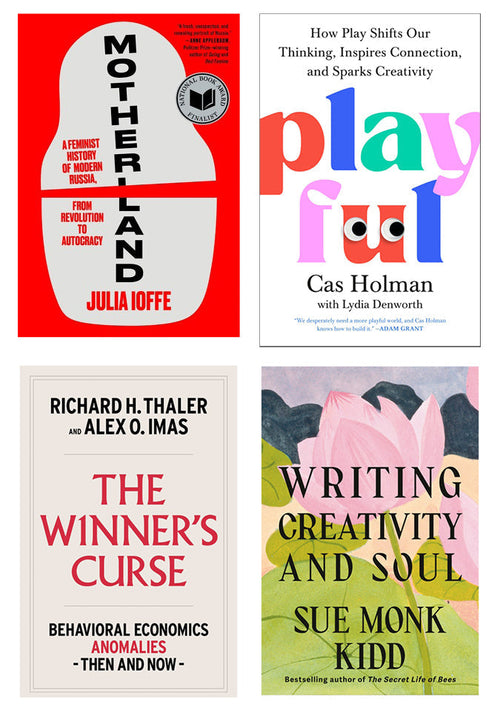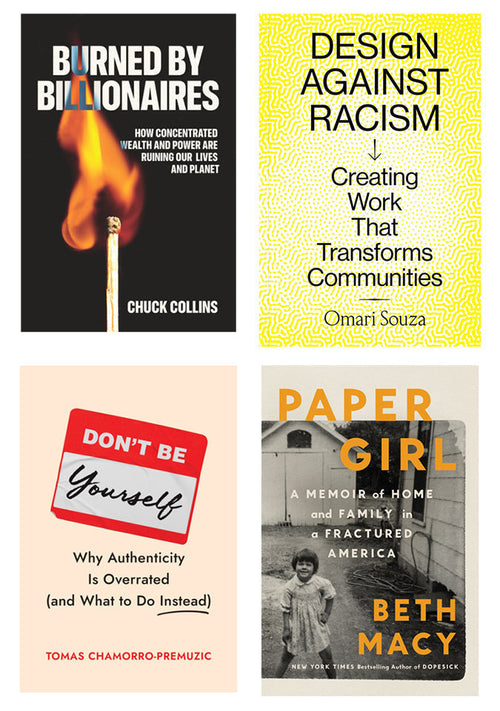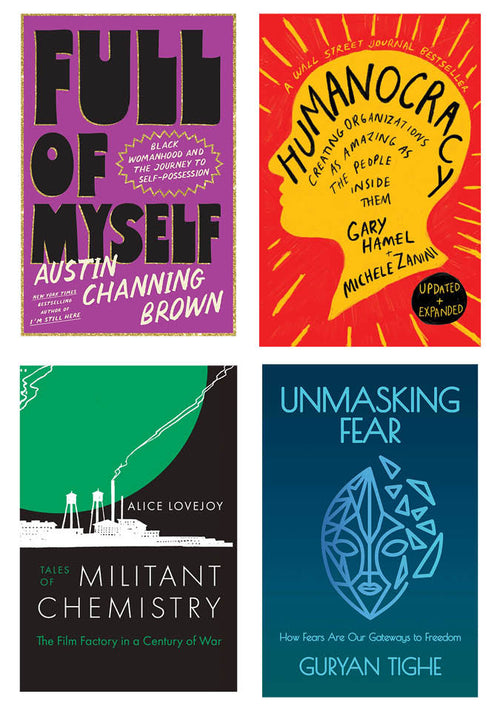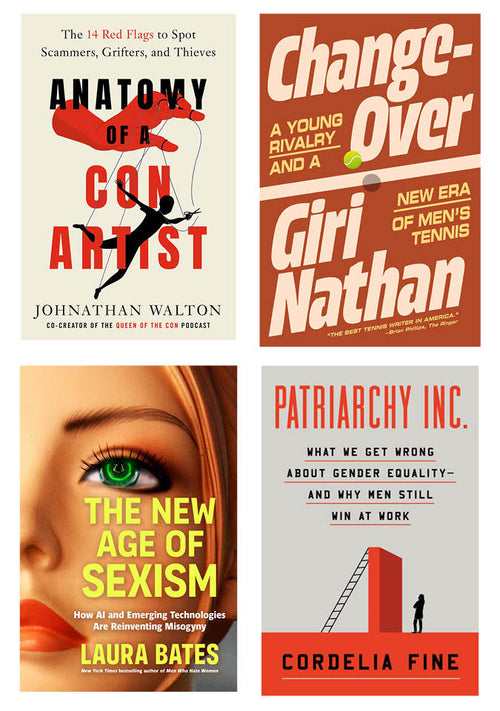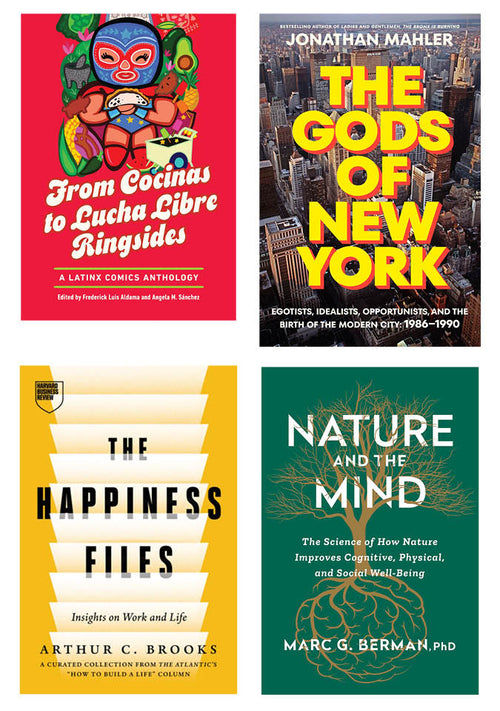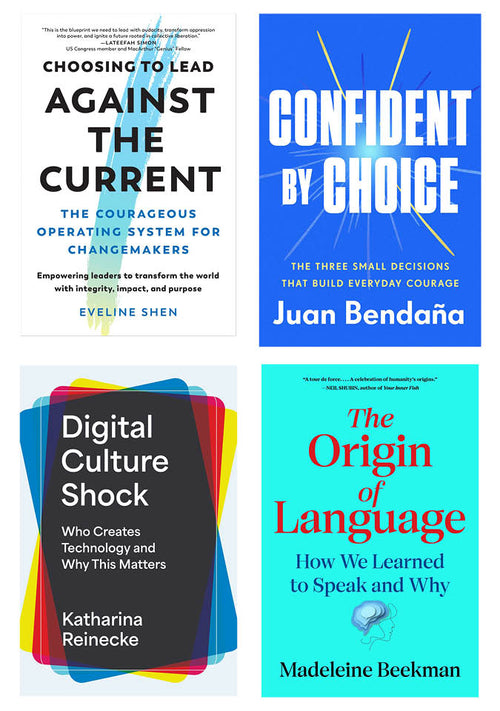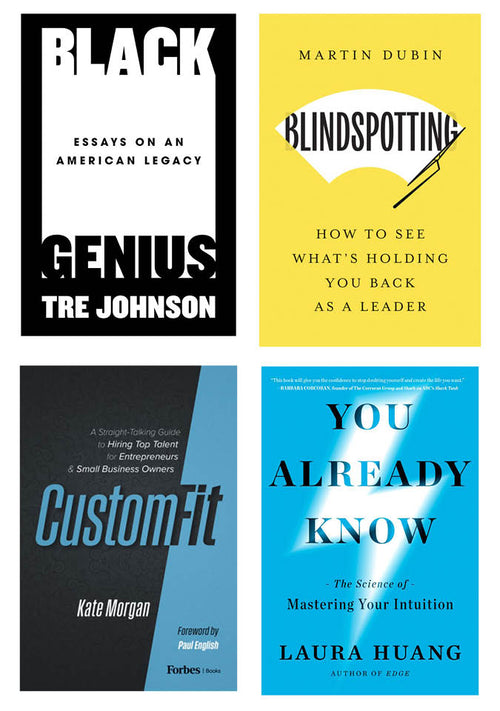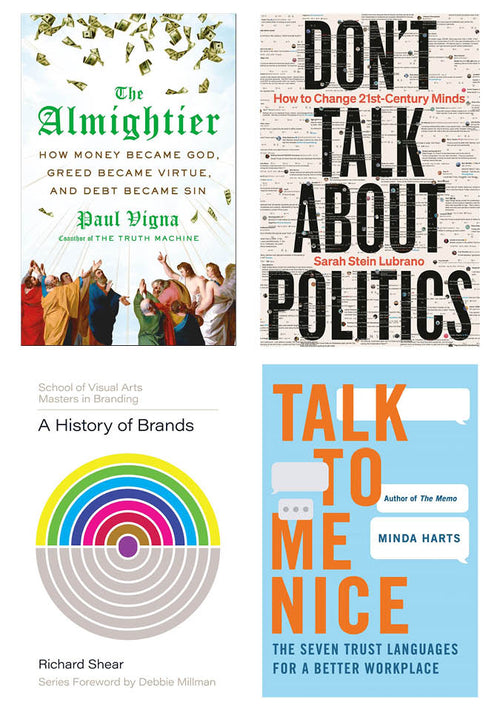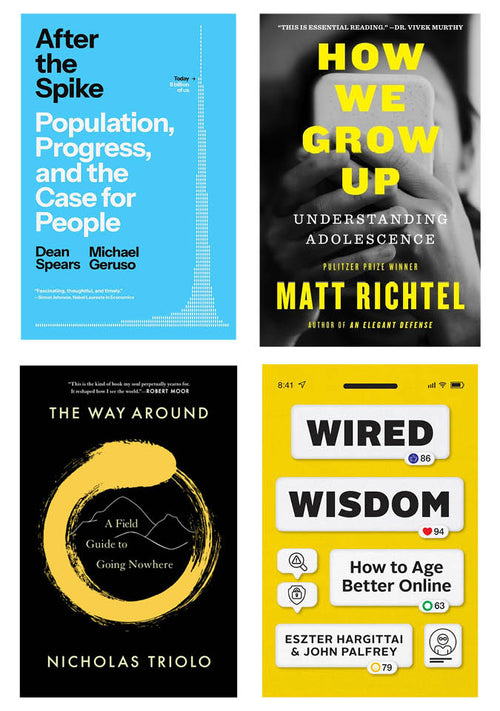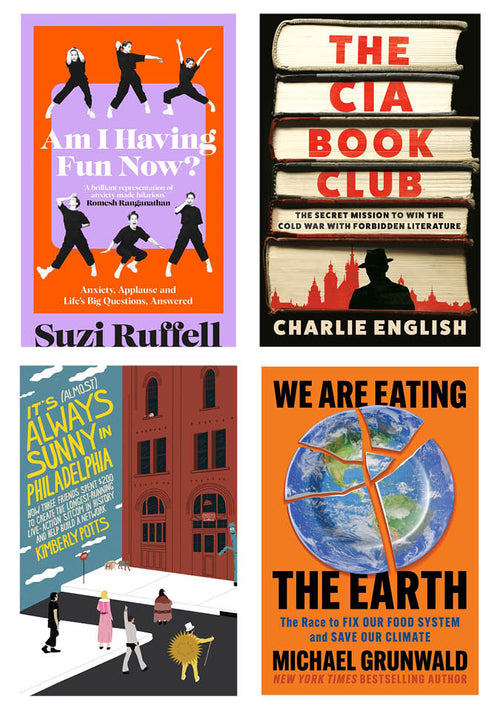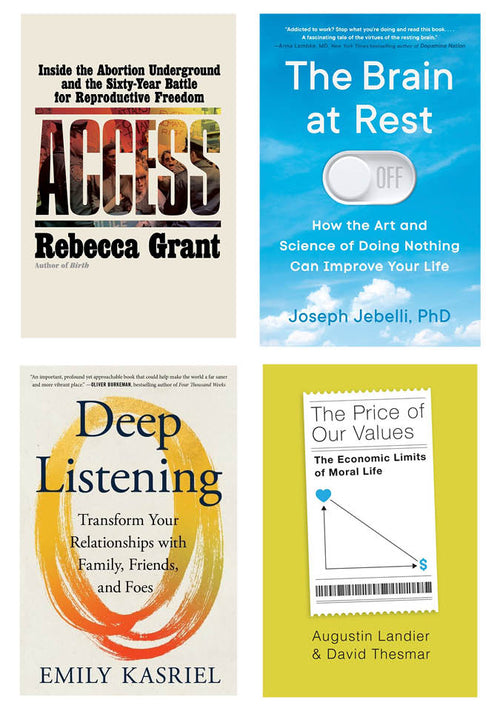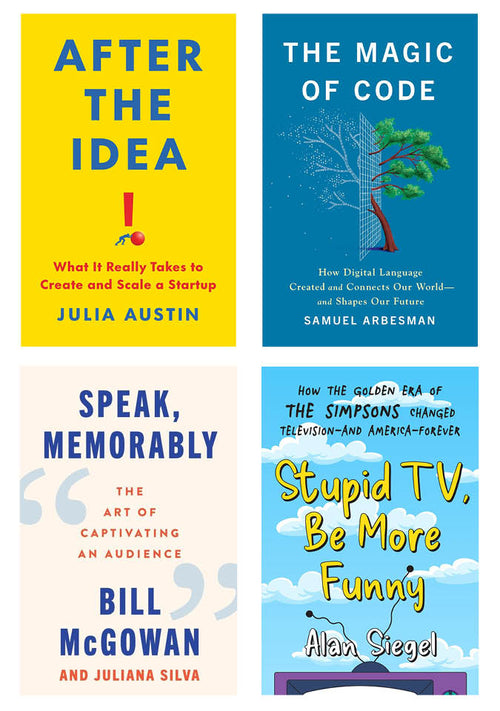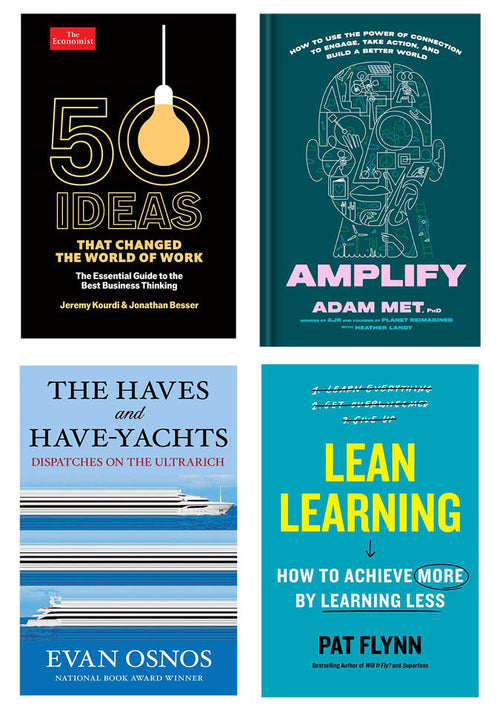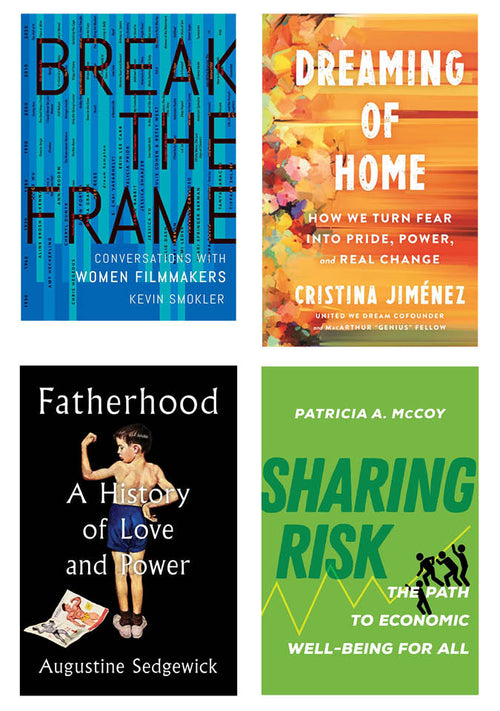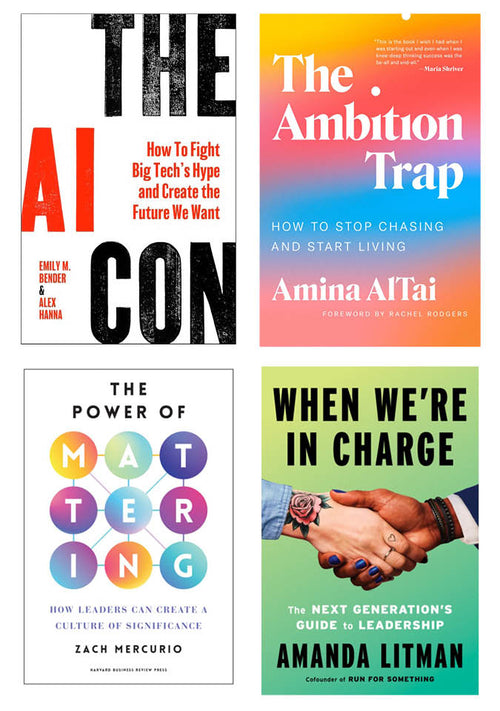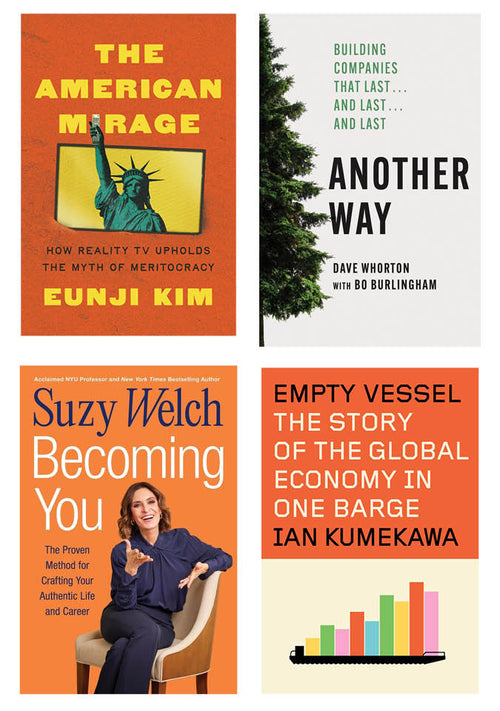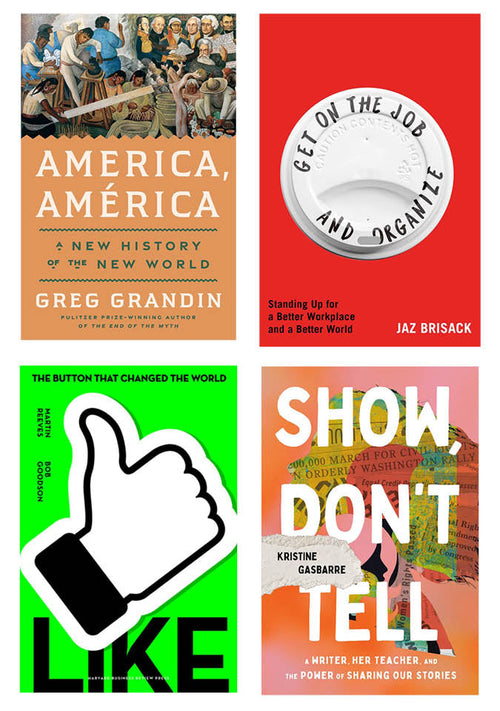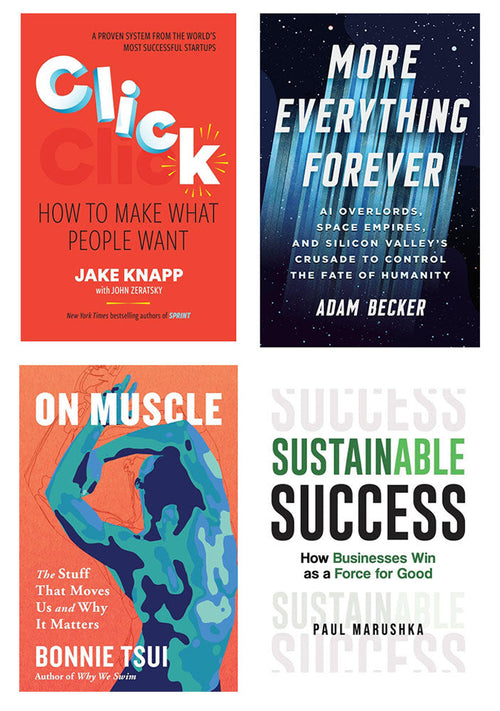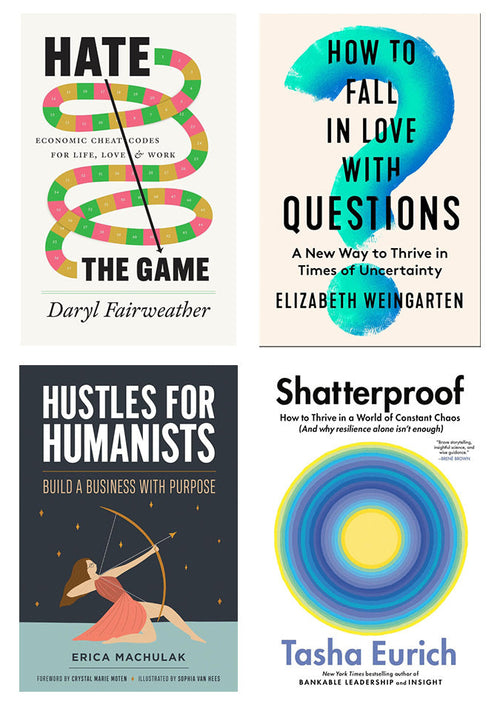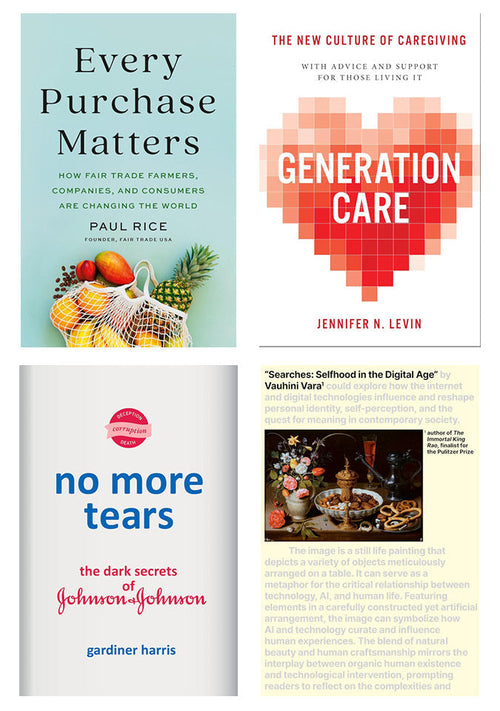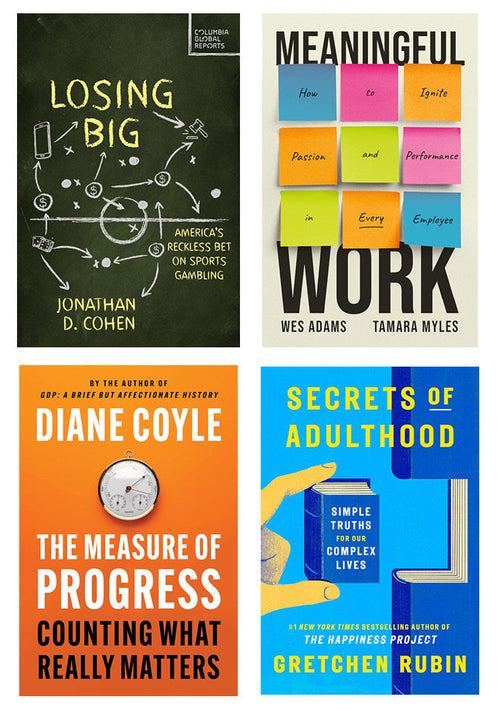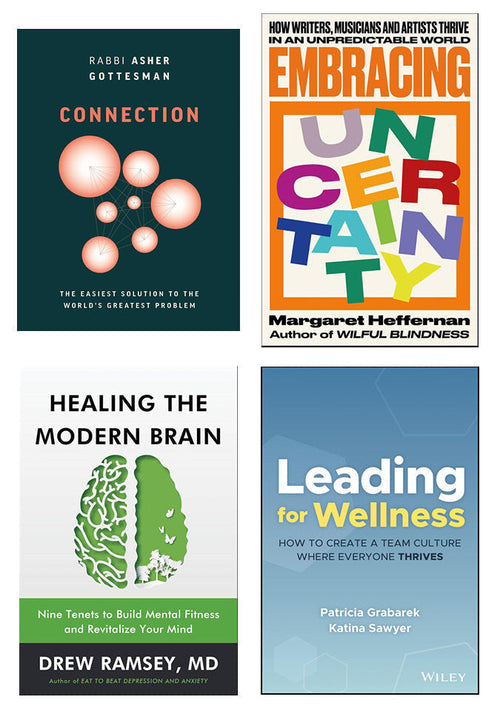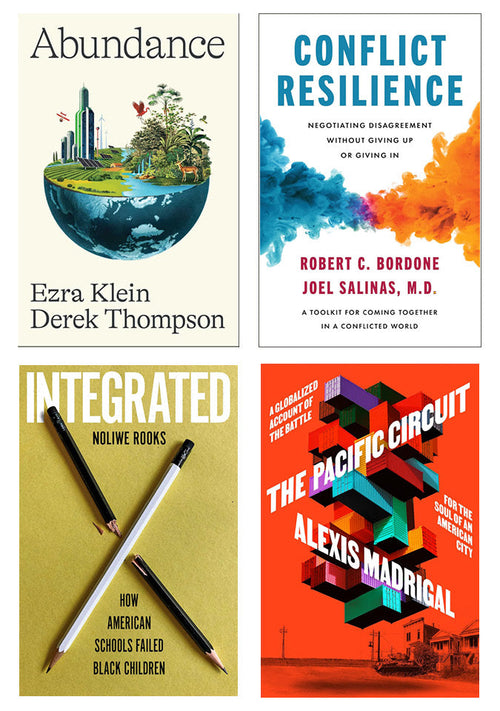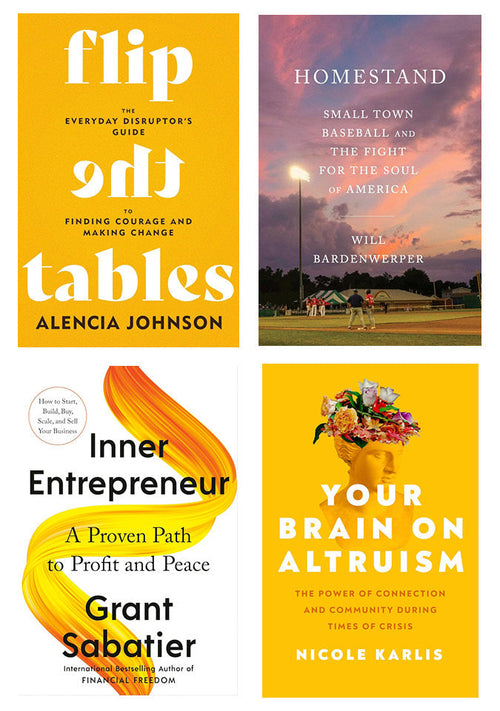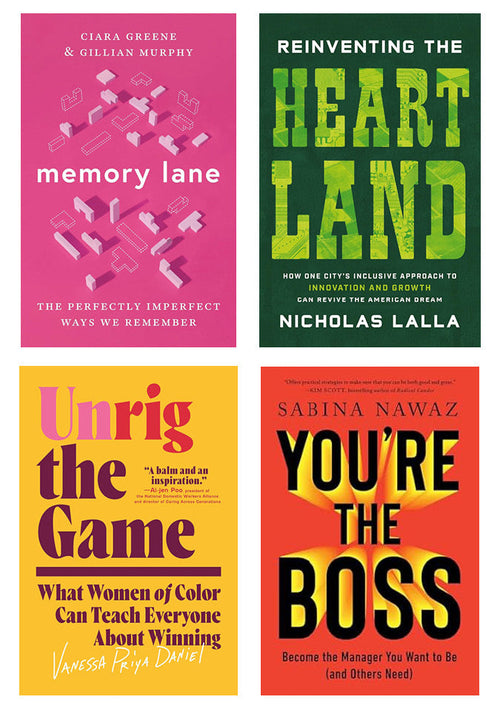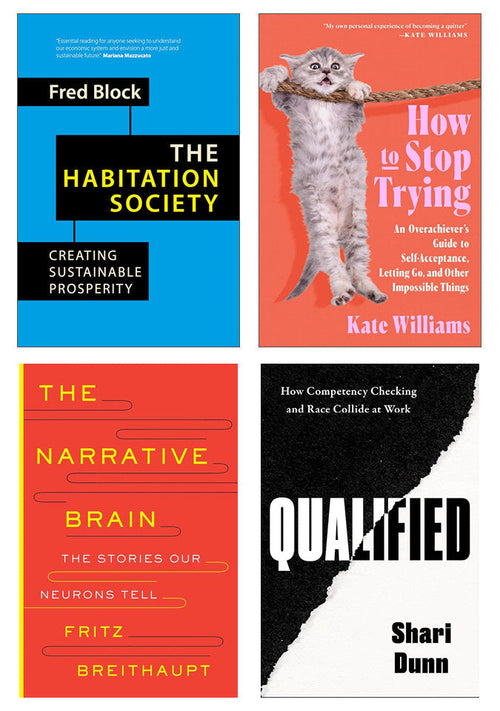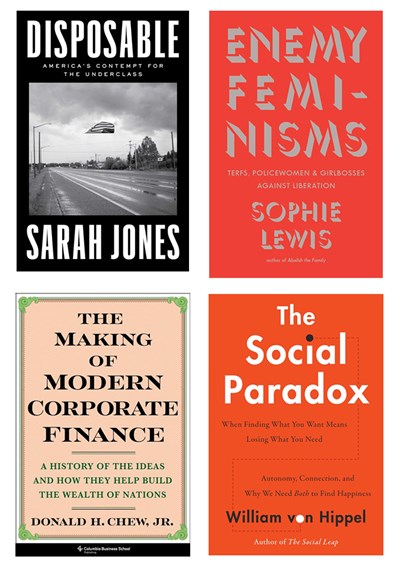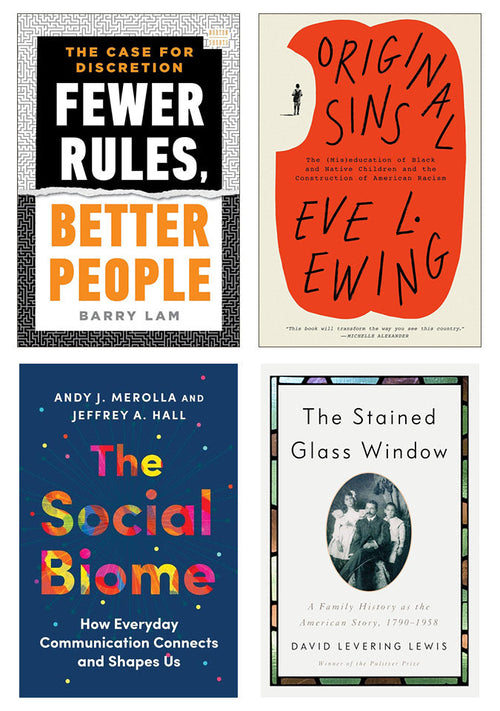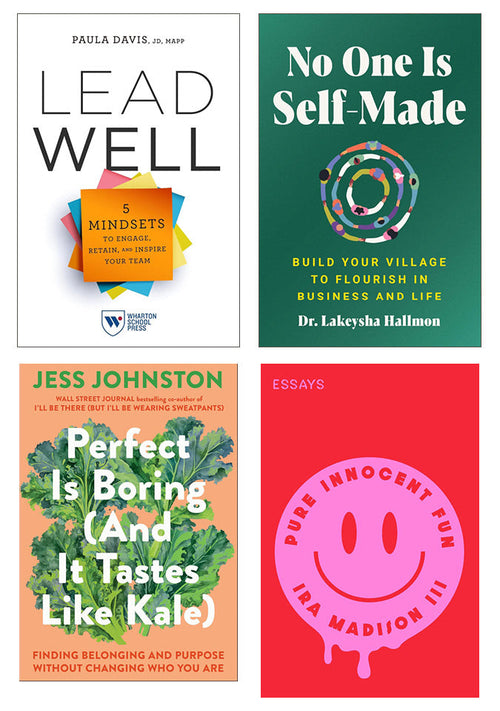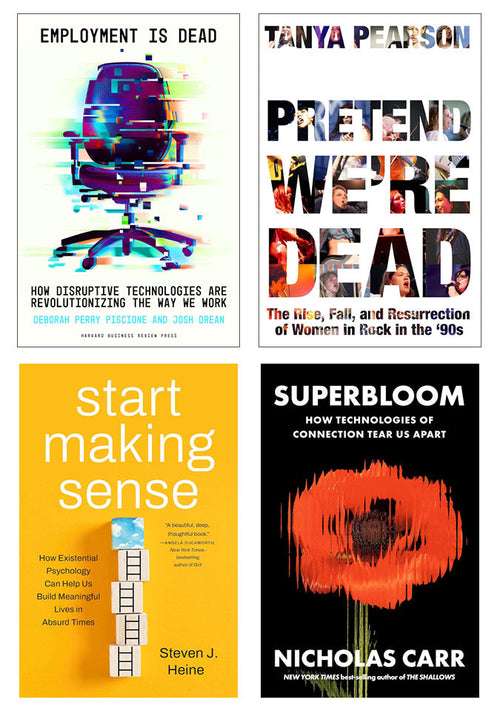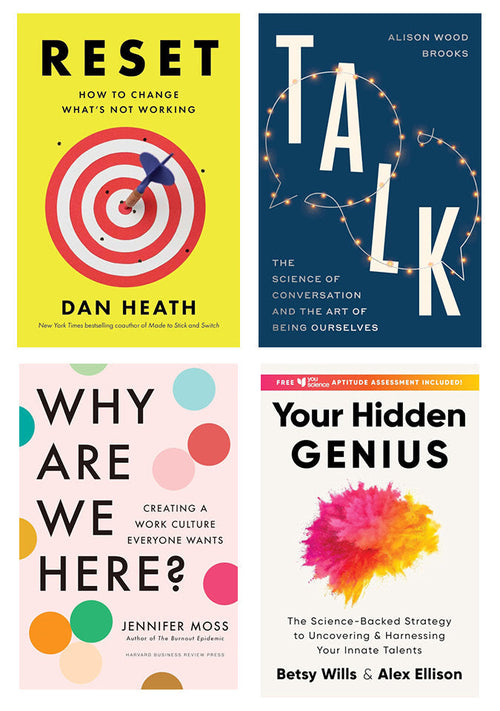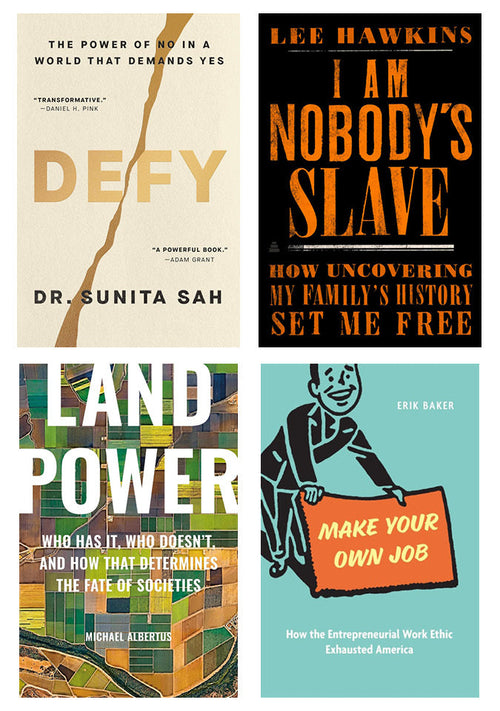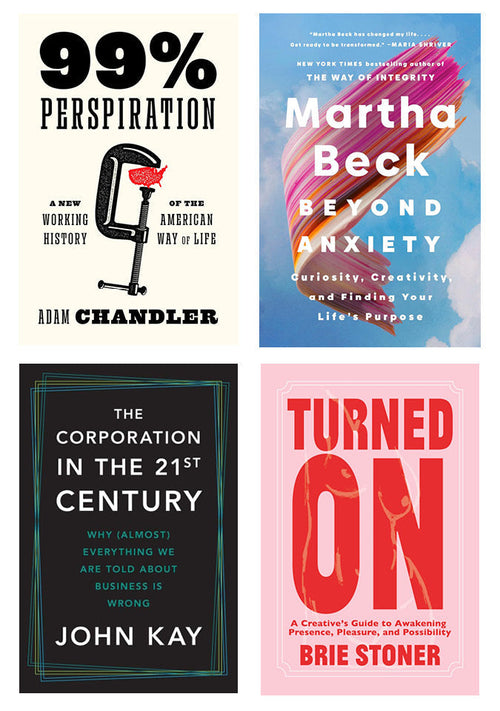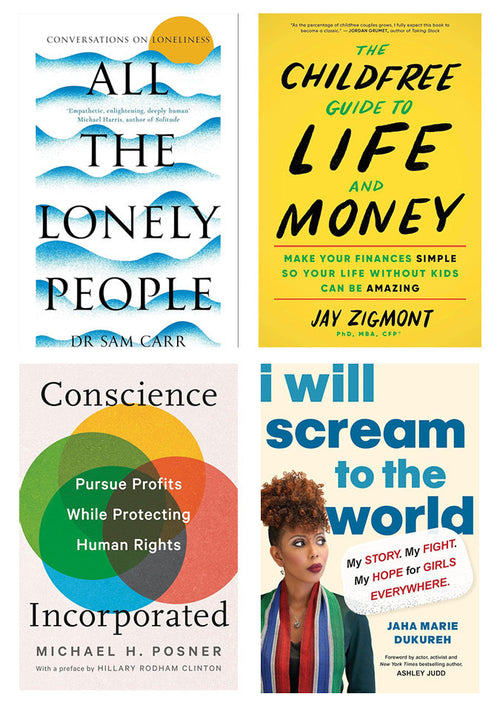Books to Watch | October 27, 2020
Each and every week, our marketing team—Marketing Director Blyth Meier (BRM), Digital Marketing Specialist Gabbi Cisneros (GMC), and Editorial Director Dylan Schleicher (DJJS)—highlights five new books we are most excited about.
This week, our choices are:

Getting to Center: Pathways to Finding Yourself Within the Great Unknown by Marlee Grace, William Morrow & Company
The touching introduction by Marlee Grace’s partner and artist, Fariha Róisín, is a heartwarming letter of recommendation and testament to the genuine human interest that Getting to Center upholds. The "center" is left up to the reader to define, which makes the book's content very adaptable to any person in any situation. Though I think it would be fair to say that the current news cycle of politics, racial unrest, and covid-19 pandemic fit the bill for conditions one could consider the “ Great Unknown" referred to in the subtitle.
Don't be put off by the looseness of definitions or the lack of straightforward instructions. Learning to trust ourselves is part of author Marlee Grace's intentions! She uses the book somewhat as a memoir, unpacking certain experiences as meditative and meaningful moments. From there, she provides exercises that the reader can use for their own life goals. For example, as a dance teacher, Grace describes her centering practice "is in a constant state of flux, of rearranging. A hopeful eagerness, a sense of urgency, and also a playful curiosity." For your own foundation, Grace provides examples of visions for art practice, business practice, personal practice, and ritual practice. "What can I be committed to in this moment of total and complete chaos?" Grace asks. Getting to Center helps us navigate those many possible answers.
Side note: Marlee Grace's previous book, How to Not Always Be Working: A Toolkit for Creativity and Radical Self-Care sounds like an essential guidebook to have around when the boundaries between "work" and "home" are less clear when working from your home office (or living room. Or bed). (GMC)
Hire Purpose: How Smart Companies Can Close the Skills Gap by Deanna Mulligan, Columbia Business School Publishing
One of the fun things about having small children is getting to explain the things we take for granted in everyday life, and relearning their significance in the process. Because one of my kids’ favorite podcasts has a recurring ad for insurance aimed at the parents listening along, that was the subject we settled on recently. Insurance has a rich history as old as human trade and economics itself, and I’ve always loved reading about its origins in fraternal benefit and mutual aid societies here in America and in Wisconsin. (The company Deanna Mulligan leads, the Guardian Life Insurance Company of America, has a great origin story rooted in the German revolutions of 1848–49 that had such an outsized impact on our hometown of Milwaukee, so that’s fun). But when it came to my explanation to my kids, I told them how insurance is integral to almost every aspect of our lives today, and how we pay a little bit of money all the time in case we ever need a lot of money all at once. And as much as I enjoy its history, what insurance is really about is our future, which is why Deanna Mulligan is uniquely qualified to write about it.
Although a range of academic researchers and management consultants have offered their analyses of AI’s potential impact on jobs, who better to provide insights than an insurance industry executive who has invested billions of dollars into projections about our future lives.
By putting people first, and looking to how changes in technology and the workplace might affect them, Mulligan has written a great guide about lifelong learning and education that can help individuals, businesses, educators, and public policy makers prepare for a transformation that is already upon us, and will affect our collective future.
I personally wish there was a little more about the history of insurance in the book, but I am sure I am the only one who is walking away with that thought. The lessons it holds for our future are the real prize here. (DJJS)
Launching While Female: Smashing the System That Holds Women Entrepreneurs Back by Susanne Althoff, Beacon Press
The title of this book highlights how differently men and women can experience the world; I did an online search for "while female" and the results highlight the many unfair hazards associated with "talking while female," "running while female," "debating while female," "adventuring while female," and more. Whether you encounter all or none of these roadblocks, you must admit that mentally navigating unwritten rules is an outrageous expectation that a good majority of our country has to manage every day.
A few statistics for perspective: 51% of our population is female. Yet, women "own fewer companies than men, and those businesses have access to significantly less start-up capital, make significantly less revenue, and employ far fewer people." And outside the business world: "Only 24 percent of the seats in the US Congress were filled by women as of early 2020." Our country is missing out on a significant portion of its citizens' perspectives, which is probably not news to you. The many roadblocks established and perpetuated by the patriarchy weakens our society. We must find a way to widen the road to success for so so so many more people. And we can do this with the right understanding of how to "play the game" so to speak, in a way that will help women of nearly any background rise to positions of power, where they can hopefully be part of a wave of greater change and equality in our world.
Author Susanne Althoff profiles women and nonbinary entrepreneurs to illustrate issues like microaggressions, lack of diversity in venture capital firms, and covered-up sexual harrasment and how to respond to these situations, and hopefully eliminate them from our workplaces and society altogether. Launching While Female lays out the hard realities of entrepreneurship for underrepresented individuals, and helps us overcome them and advance collectively. (GMC)
Monopolies Suck: 7 Ways Big Corporations Rule Your Life and How to Take Back Control by Sally Hubbard, Simon & Schuster
It has been stated many times, but it bears repeating: while it may be the biggest challenge we face, the coronavirus didn’t create most of the underlying problems now hitting us so hard. Yes, we could have had a better federal response, and should have. But the economic pain we are experiencing is in many ways exacerbated by monopolies that are now profiteering off of the crisis. As Sally Hubbard notes, our very ability to respond to the crisis (short of the Defense Act) has been undermined by a generation’s worth of consolidation in the health-care industry:
Decades of rampant health-care mergers made us sitting ducks for COVID-19, with only a few big companies left to produce critical supplies. Masks, ventilators, gowns, reagents—we couldn’t get enough because so few suppliers remain, and they have stopped making things in America.
Allowed under the idea that economies of scale would make them more efficient, monopolies in industries as wide-ranging as our meat packing plants and the manufacture of PPE have been exposed as a fundamental fragility and weakness in our system, and the same is true in everything from our agricultural supply to our information supply. All this as they use their positions of economic strength to raise prices, lower wages, pay almost nothing in taxes, and lobby our lawmakers to rewrite the rules ever more in their favor. In doing so, Hubbard writes:
They’re also robbing us of innovation, choice, the ability to take care of our sick, a healthy food supply, a habitable planet, our privacy, fair elections, a robust press, and, ultimately, the American dream.
But it’s not all doom and gloom. We have examples from our past, and laws on the book, to help us turn back the tide. The federal antitrust lawsuit filed against Google last week may have, as Tim Wu wrote in The New York Times, “significance greater than itself.” To understand why it is so important we make sure that it does, to ensure it’s but the first challenge to monopoly power, pick up a copy of Sally Hubbard’s Monopolies Suck. (DJJS)
The Rise: Black Cooks and the Soul of American Food by Marcus Samuelsson with Osayi Endolyn and recipes by Yewande Komolafe and Tamie Cook, Voracious
There is nearly no end to the ways in which to describe chef Marcus Samuelsson. Entrepreneur, father, Ethiopian, Swedish, American, television show host, writer, and now advisor to the re-launched Bon Appetit. To that list, I’d like to suggest another: leader. We read and think and write about leadership a lot here at Porchlight. Some might think of leadership much like charisma (something Samuelsson also has in abundance), a quality you are either born with or not. But I like to think of leadership as a series of choices; small and large everyday choices that either lift those up around you to new heights or leave them to remain followers. With his newest book, The Rise: Black Cooks and the Soul of American Food, Samuelsson leaves no doubt as to what kind of leader he is in the food world, and beyond.
The Rise was created to highlight the incredible talent and journey of Black chefs, culinarians, and writers at work today, and to show how the stories we tell can help make a more equitable, just industry.
To create this singular book, Samuelsson assembled a dream team of both subjects and authors alike (Osayi Endolyn and Yewande Komolafe are two of the most exciting voices in food writing today). This is what leaders do—they take the power of their position and widen the pedestal for others to stand with them. This book exemplifies leadership at its finest.
This is not a compilation cookbook, but rather it’s the fruit of Samuelsson and his team thinking deeply about the contributions of each of these chefs to our national culinary discourse and channelling them in creation of new recipes, like Haitian Black Rice and Mushrooms (in honor of Top Chef’s Gregory Gourdet), Kelewele Crusted Catfish (in honor of The Chew’s Carla Hall), Tigernut Custard Tart (in honor of Jubilee author Toni Tipton-Martin), and Saffron Tapioca Pudding (in honor of historian Jessica B. Harris). “Black chefs’ names need to be sung. Let this book be the chorus.” Here’s to us all swapping our Zagats for The Rise as we plan our first post-pandemic road trips, windows down, and singing these names at the top of our lungs. (BRM)
What we're reading away from work:
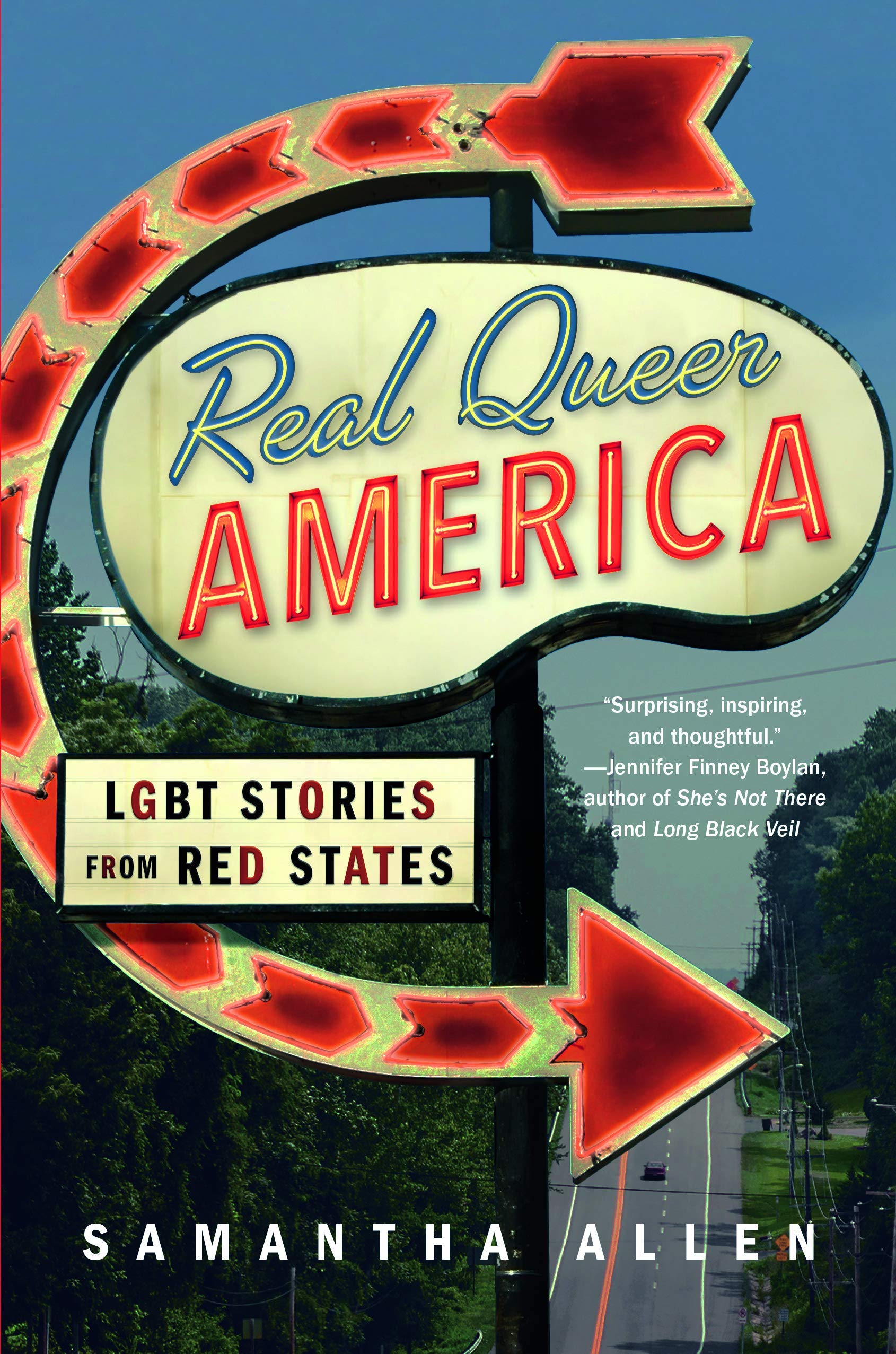 “I'm reading Real Queer America: LGBT Stories from Red States by Samantha Allen. It is the transgender author's story collection about her travels in the bible belt and the surprising amount of pride, support and community in the most unlikely places. In these bleak times when Trump's America tends to marginalize people and keep even family members at odds, these individual tales speak of hope, promise and the knowledge that there is strength in numbers. The grassroots of change are coming from a new place with a different network of chosen family and friends craving a better world than what we have."
“I'm reading Real Queer America: LGBT Stories from Red States by Samantha Allen. It is the transgender author's story collection about her travels in the bible belt and the surprising amount of pride, support and community in the most unlikely places. In these bleak times when Trump's America tends to marginalize people and keep even family members at odds, these individual tales speak of hope, promise and the knowledge that there is strength in numbers. The grassroots of change are coming from a new place with a different network of chosen family and friends craving a better world than what we have."
— Roy Normington, Senior Customer Service Specialist


